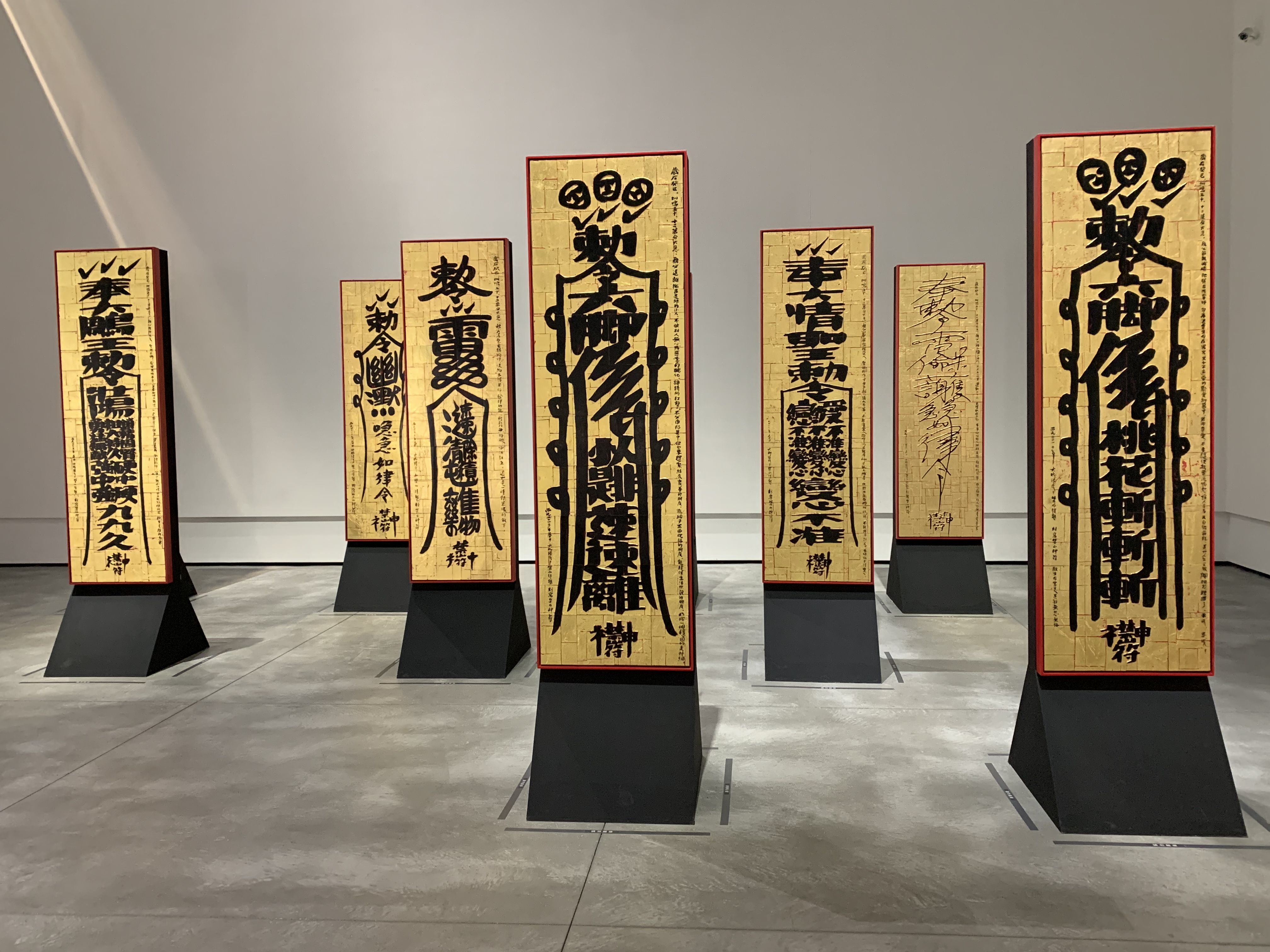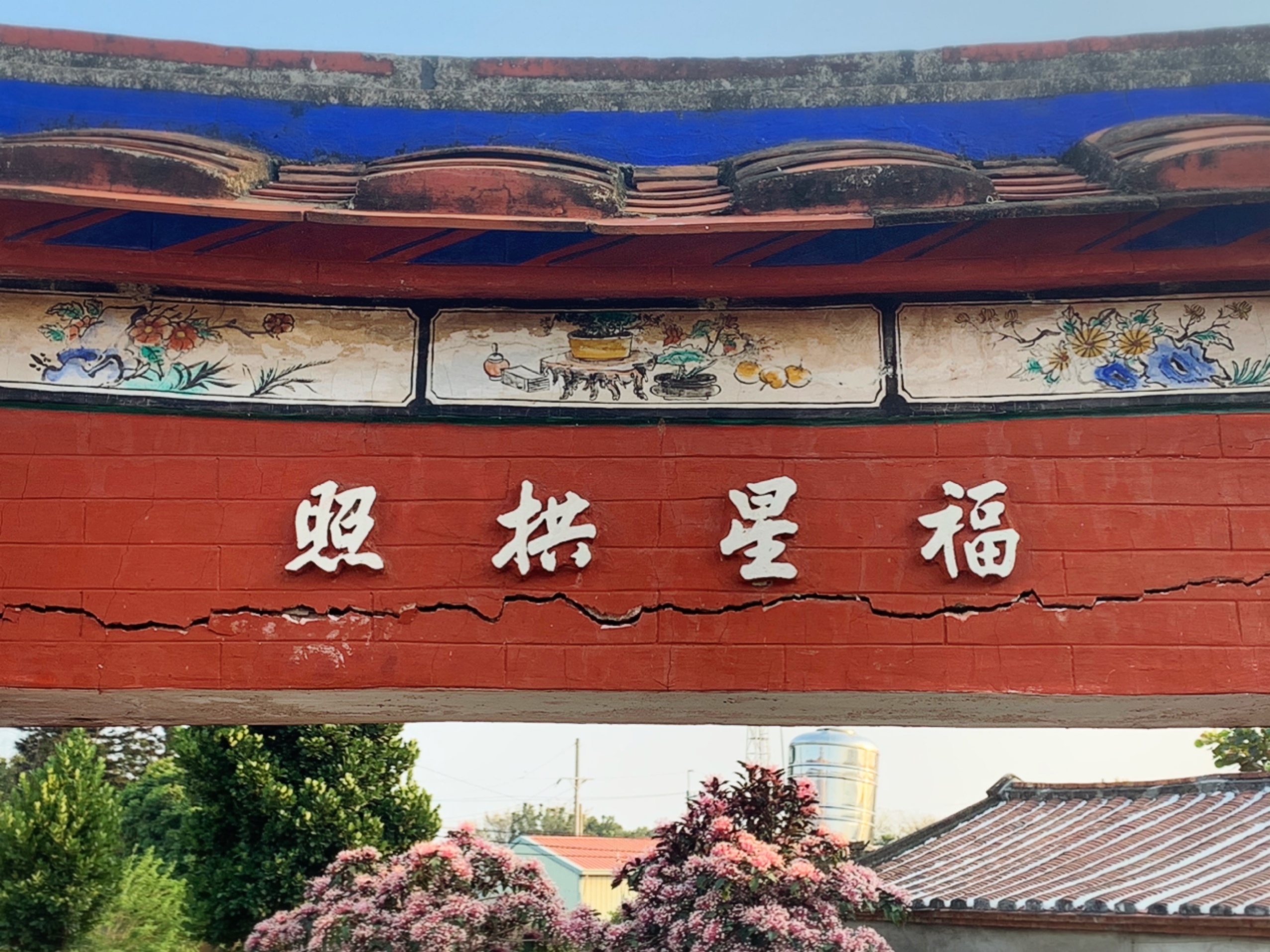
When I was young, my parents would take long Sunday drives, often stopping off at areas of historical significance. Dad was interested in wars and their associated geography; Mom, old houses and mansions. I was bored witless. I had no appreciation for that kind of history in my youth, and while the old houses could sometimes be intriguing — I’ve always been into cool structures and antique objects — the geographical locations themselves were generally quite bland. It honestly did not matter to me that “George Washington had a meeting here”.
Taiwan, however, has kindled some interest in historical locations for their own sake.
Enter Luermen (鹿耳門), where Cheng Cheng-kung/Koxinga (鄭成功/國姓爺) first landed in Taiwan. I’d been interested in the area since reading Tonio Andrade’s Lost Colony despite knowing that there was no longer a “landing site” per se, as the entire area had silted in through the intervening three centuries.
I hadn’t prioritized a trip to the area in part because bus service is spotty: you can take a bus out to the park at the Koxinga landing site from Tainan City, but there isn’t much there other than a decrepit park, and the trip will take you between 1.5-3.5 hours despite it being just 15 kilometers northwest of central Tainan — about a half-hour drive. There are other things to see but they either require walking, or are simply too far away. I’d also heard that there just wasn’t a lot going on there, hardly worth organizing an excursion.
We went with a local friend from Tainan, whose ancestors came to China with Cheng Cheng-kung and, having recently moved back to Tainan, was interested in finding the spot for her own heritage-related reasons. It certainly helped that she speaks fluent Taiwanese as you won’t find many people who prefer Mandarin in these parts.
While it’s true that there’s “not a lot going on” in this corner of Tainan, if you have access to a car and some free time, I actually recommend taking a trip out that way. From temples of historical significance to a truly isolated beach and some cool old houses within driving distance, you can easily fill up a day out here.
Oh yes, and you can visit what I believe to be Taiwan’s most scenic bathroom.
We began our journey at La Belle Maison in the back lanes of Anping, in a building that I’d rather confidently place as Art Deco/Streamline, though I didn’t ask. La Belle Maison is run by a friendly Frenchman and has excellent meals and coffee, luscious desserts (the tiramisu is the size of a baby’s head!) and is decorated in a sort of botanical-vintage style. See if you can find the partially-hidden Chiang Kai-shek bust. Then it was time to hit the road.
Beishanwei Matsu Temple / Luermen Tianhou Palace (北汕尾媽祖宮/鹿耳門天后宮)
This temple was our first stop. At first I was impressed by the size of the place, but aesthetically it isn’t particularly unique: it has that late-70s red granite and orange roof look common to many temples across Taiwan. This rather boring facade hides a fair amount of history, however.
Although it’s impossible to tell from the current structure, Beishanwei Matsu Temple was founded in 1661; the temple’s website states that this was done by Koxinga himself, as he had prayed to Matsu at that spot for a successful siege against the Dutch at his first arrival. Over time, the temple expanded with added gates and banyan trees, and in 1719, funds were donated to turn it into “Tianhou Palace” (天后宮). A flash flood in 1871 destroyed the temple, although the Matsu idol was saved. The idol itself is still ensconced in this temple and according to the website, is in fact the original, made of fine wood with emeralds set in her robe — not that one can get close enough to admire all this.
The temple was rebuilt in 1977, which is why it looks as it does now. Nearby, attractive Luermen Mansion (鹿耳門公館) is a restored heritage building, though it appeared closed when we popped by.
At the time Beishanwei Temple was located at the south end of Luermen Harbor, on a bit of land that sure does look like it was once a tail (尾) stretching into the water. I'm not sure of the reason for using "shan" (汕) in the place name, but this post names the area Bexianwei 北線尾 or "north thread tail", which makes sense if you look at the included map. Don't quote me on any etymology, though. I also think this is the island Andrade calls "Baxemboy", as that sounds like it would be about right in Minnanyu -- but don't quote me on that either.
There had been a small Dutch fort on Beishanwei guarding Luermen (鹿耳門 the Deers' Ear Gap), but it had been destroyed in a massive 1656 typhoon. I don't know exactly where it was, but it couldn't have been far from where the Matsu temple now stands. The destruction of that fort is one reason Koxinga was able to sail through.
In addition to slow sedimentation in the years after Koxinga drove out the Dutch, a flash flood caused by a typhoon in 1823 silted in much of the Taijiang “Inner Sea” (台江內海). This was the wide, shallow body of water separated from the Taiwan Strait by a series of sandbars, called the seven "kunshen" (鯤鯓) which now form several place names along the coast. That sea once stretched from the front of Chikan Tower in central Tainan to Xigang 西港 in the north, down to the northern edge of Kaohsiung County. Roughly, anyway: the sandbars and edges of the inland bay shifted frequently due to storms, floods and sedimentation.
I haven't seen a place name like this before and thought it might perhaps be derived from an Indigenous language, as with Chikan Tower (赤崁樓), named after the Siraya village of Saccam that once existed in the area, and some people are quite upset by the characters chosen to depict it. It's not, however: a kun 鯤 is a mythical sea monster or massive fish, like a whale, and a shen 鯓 is its back rising out of the sea.
Due to these geographical changes, the Taijiang area went from being navigable -- albeit dangerous -- by sea to being slowly silted up, with the old "sea monster's back" forming the coast. Now Beishanwei Matsu Temple is surrounded by dry land, shallow waterways and fish farms.
There is another reason to stop at Beishanwei Matsu Temple: if you want to make a wish on a wooden plaque as close as possible to an area of great historical significance, this is the closest you’re going to get as the other nearby Matsu temple doesn’t have wishing plaques. I always wish for Taiwan independence (台灣獨立) and although I’m an atheist, it felt significant to make that particular wish at a temple founded by a man who was not the “hero” the ROC wants to portray him as, but still historically important to Taiwan.
Luermen Matsu Temple (正統鹿耳門聖母廟)
This “orthodox” (正統) Matsu temple a few kilometers north of the Beishanwei Matsu Temple has a confusingly similar name, but the Chinese names help differentiate them. This is the closest temple to the actual Koxinga landing site.
People working/hanging out there (it’s hard to tell with temples sometimes) told us that Koxinga had passed by this spot on the way to the site of his first proper ‘landing’ and again prayed to Matsu. A related website also states that in 1661, Koxinga funded the reconstruction of the temple that once stood here as he prayed in this spot as well.
Temple rivalries are fairly common, so it could be that these temples disagree on which one the story relates to. However, it’s not inconceivable that he prayed at both places and ordered the founding of two Matsu temples in the same year to thank the sea goddess for her help in his victory over the Dutch.
This temple was destroyed in 1831 by yet another Zengwen River flood, and its Matsu idols relocated to the Sanjiao Hai’an Temple (三郊海安宮) and Water Fairy Temple (水仙宮), both still in existence (the former seems to have undergone its own 20th century renovation, the latter still boasts an older structure, in the middle of a bustling market). It’s not clear if the idols are still in those temples or have been re-ensconced in the rebuilt Luermen Matsu Temple.
The site lay dormant until 1913, when a King Boat from Quanzhou’s Fumei Temple — the same type as the one they burn to Wang Ye in Donggang every three years — was found drifting near the site. Apparently, was pushed out to sea several times and floated back each time. People felt this was a good reason to rebuild the temple, although that structure doesn't seem to exist anymore, either. The current structure dates from 1981.
According to this blog, that same boat can be found on display at the temple, but we didn't see it (that place is huge and we didn't know it was there).
So why visit? In addition to having reported historical ties to Koxinga, this temple boasts of being the “largest Matsu temple in the world”, though other sources merely state it's the largest in Taiwan. It is indeed massive, dwarfing the Beishanwei Matsu Temple, which is itself quite large. There’s also a bustling night market that sets up here, and two massive statues of Matsu’s guardians, Thousand Mile Eyes (千里眼) and Ears Hearing on the Wind (順風耳), which are apparently the largest statues of their type in the world.
Cheng Cheng-kung Memorial Park (鄭成功紀念公園)
A short drive from the Luermen Matsu Temple, you’ll come to what might well be the most underwhelming part of a day driving around the area: the actual landing site of Cheng Chenggong. There is a park here, with a cute vintage-y arch and a stone monolith. It’s poorly-maintained and usually empty; the only people you’re likely to encounter in the park itself are the folks watering the plants. There is a restroom here, but no promises on how well it actually works.
It's worth revisiting the story of Koxinga's landing, as most summaries don't do it justice. To face the Dutch, Koxinga needed to get into Taijiang. But with Fort Zeelandia guarding the deeper channel into the Taijiang Inner Sea, Luermen was the only suitable alternative. The channel was far more shallow and full of shifting sandbars. Andrade notes that maps differed quite a bit, in part because the geography kept changing, but some clearly show a set of islands in this area that do indeed look like two deers' ears.
Koxinga did not just successfully navigate this treacherous channel, he used strategy to do it. He braved foggy rain on the way from Penghu in order to reach the area by the new moon, when tides would be high. That higher tide allowed his deep-cutting ships to pass through an area that would have otherwise destroyed his fleet.
Anyway, back to the park.
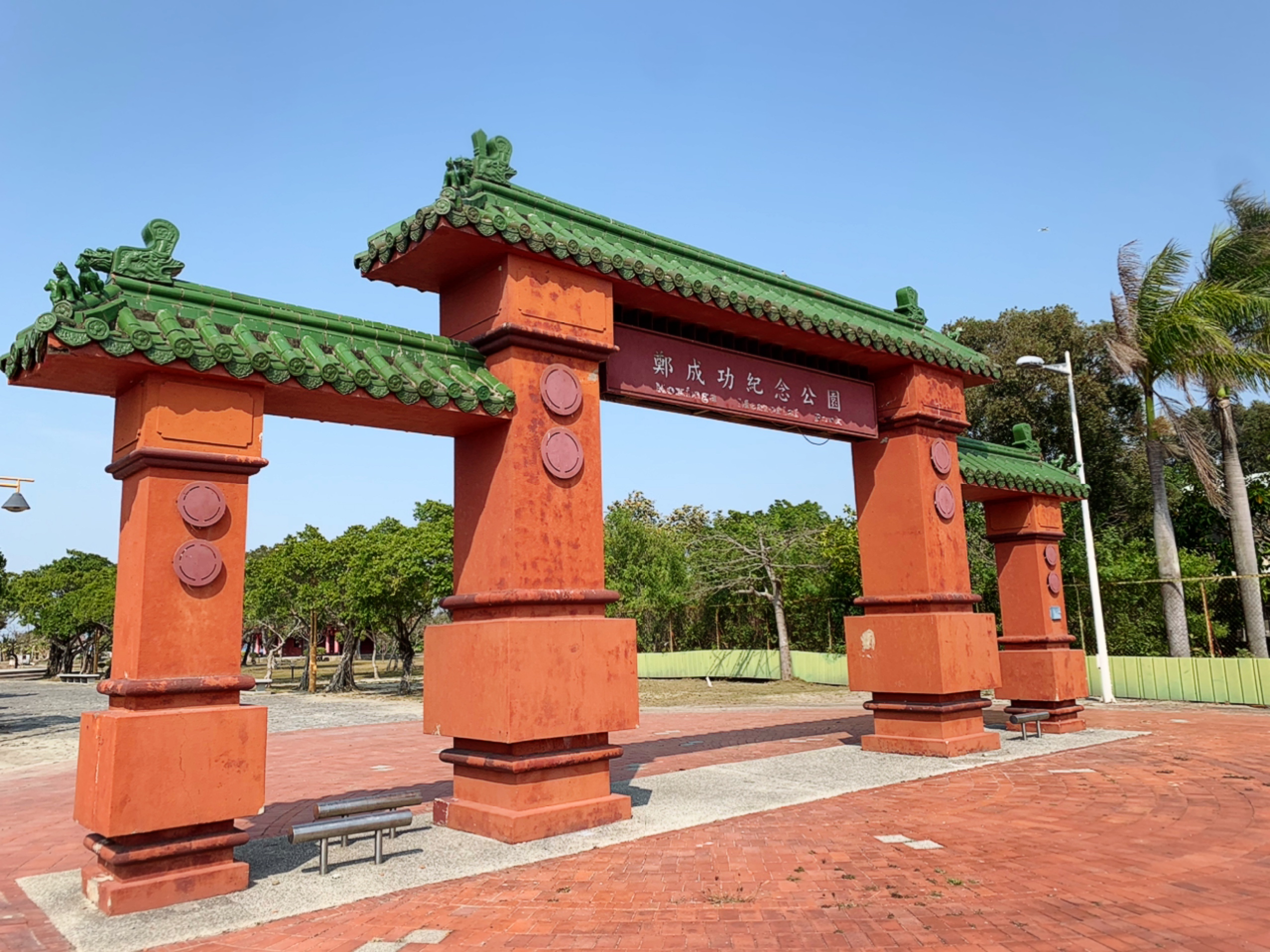
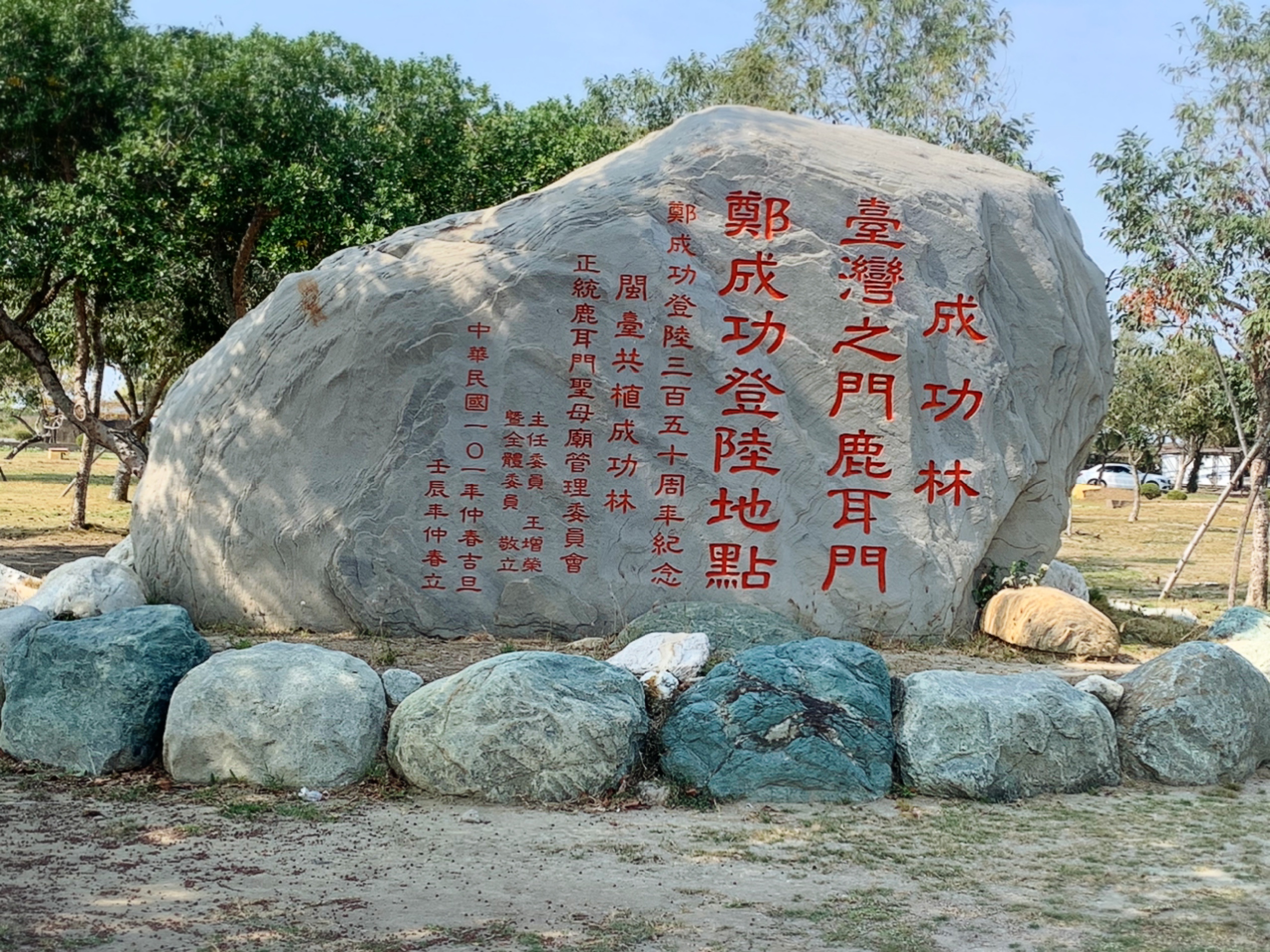
Enjoy the middle-of-nowhere decrepitude for awhile, and meditate on how this spot used to be on the water — now completely silted in and well inland. Then, poke around behind the park, where a small road (which turns off just before you reach the park and runs behind it as a country lane) reveals a few rundown houses on the edge of yet another milkfish farm. A friendly guy who once trained in Hawai’i as an athlete for Taiwan — I think he said he’d played rugby — owns the small house back here, inherited from his parents. He doesn’t live there full time (honestly nobody would want to), but he sometimes pops around on the weekends to hang out and tend to his garden. He told us he always enjoys making new friends, and gave us some passionfruit from his garden.
He also let us know about Luermen’s best-kept secret, a wide, clean beach at the end of a mangrove estuary, which you’ll probably have all to yourself. While you can take a bus out to the temples and park above, at this point driving is necessary.
The quiet beach
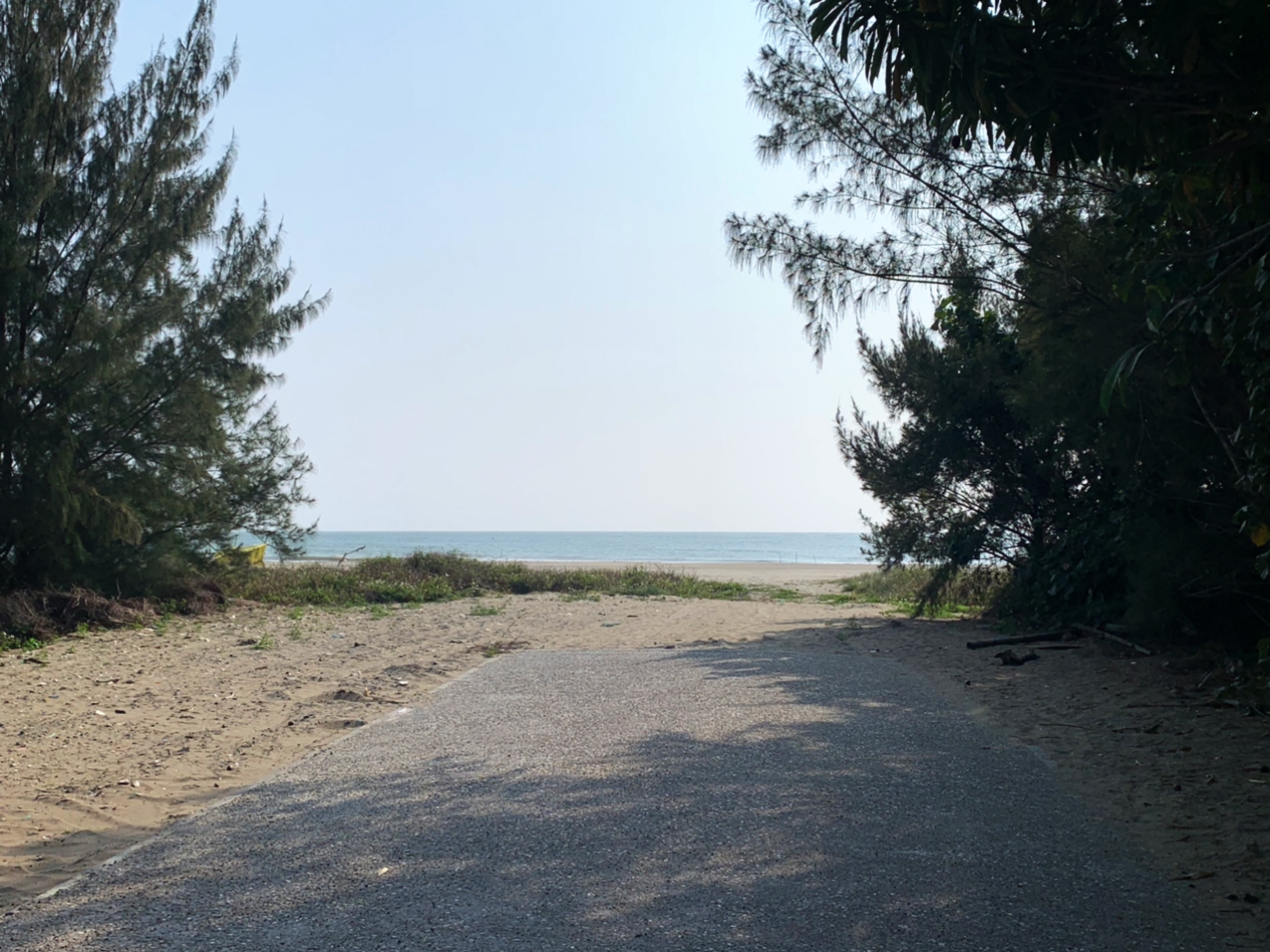
Here’s how to get there: drive towards the coast on the main road (Chengxi Street 城西街) that passes by the Memorial Park, to the very end. When you hit the T-junction, turn left. Keep going along the Zengwen River, do not turn back inland. Stop and walk up the concrete embankment to get a view of the river if you feel like it, though we didn’t. Take this embankment road all the way to the end, where there’s a small parking lot. In fact, it is possible to continue driving as the road you’ll be walking to the very end is passable by car and scooter, but it’s a pleasant walk through woods and mangroves.
It’s perhaps another ten-minute walk to the beach; you’ll know it when you see it. You can continue along the path away from the beach, but we didn’t.
When we went, the area was completely deserted and peaceful. We weren’t dressed for swimming or even going barefoot — I had socks and sneakers on — so we didn’t go in the water, but you absolutely could. Just be careful as there is literally no one around to save you if you get into trouble. It’s just you, the sand, the sun, the sea and lots of oyster shells. Perhaps a fisherman, but likely not even that.
Nanching/Lady Tsai Temple (南清宮/蔡姑娘廟) and Taiwan’s most scenic bathroom
After the beach, it was time to take a pit stop. I have no idea how our friend found this small temple in the middle of miles of fish farms, but she did. We pulled up, asked about a bathroom — most temples have them — and were directed out back.
I wish I’d stopped to ask the locals hanging out what the history of this temple was, but we were so focused on a bathroom that it slipped our minds. This website says that Lady Tsai would sail between Taiwan and Fujian in the jewelry business, and seeing all the corpses from shipwrecks in this area — remember, it was once a shallow harbor full of deadly sandbars — had a temple founded there, though it’s obviously been rebuilt many times since, and the current structure has a 1980s look to it.
Anyway, I didn’t get a picture, but climb the stairs from the big metal structure in front of the temple to the raised dirt path out back, and enjoy the view across the fish farms! There’s even a picturesque palm tree swaying in the wind coming off the flat land transformed into a series of ponds and farms. The actual toilet is in a building with no view, but if you have the right parts, the open-air urinal will allow you to feel the country breeze on your cheeks (your other cheeks) as you relieve yourself.
You're welcome!
Abandoned Ji Gong Temple (Wansheng Temple) (萬聖宮/濟公廟)
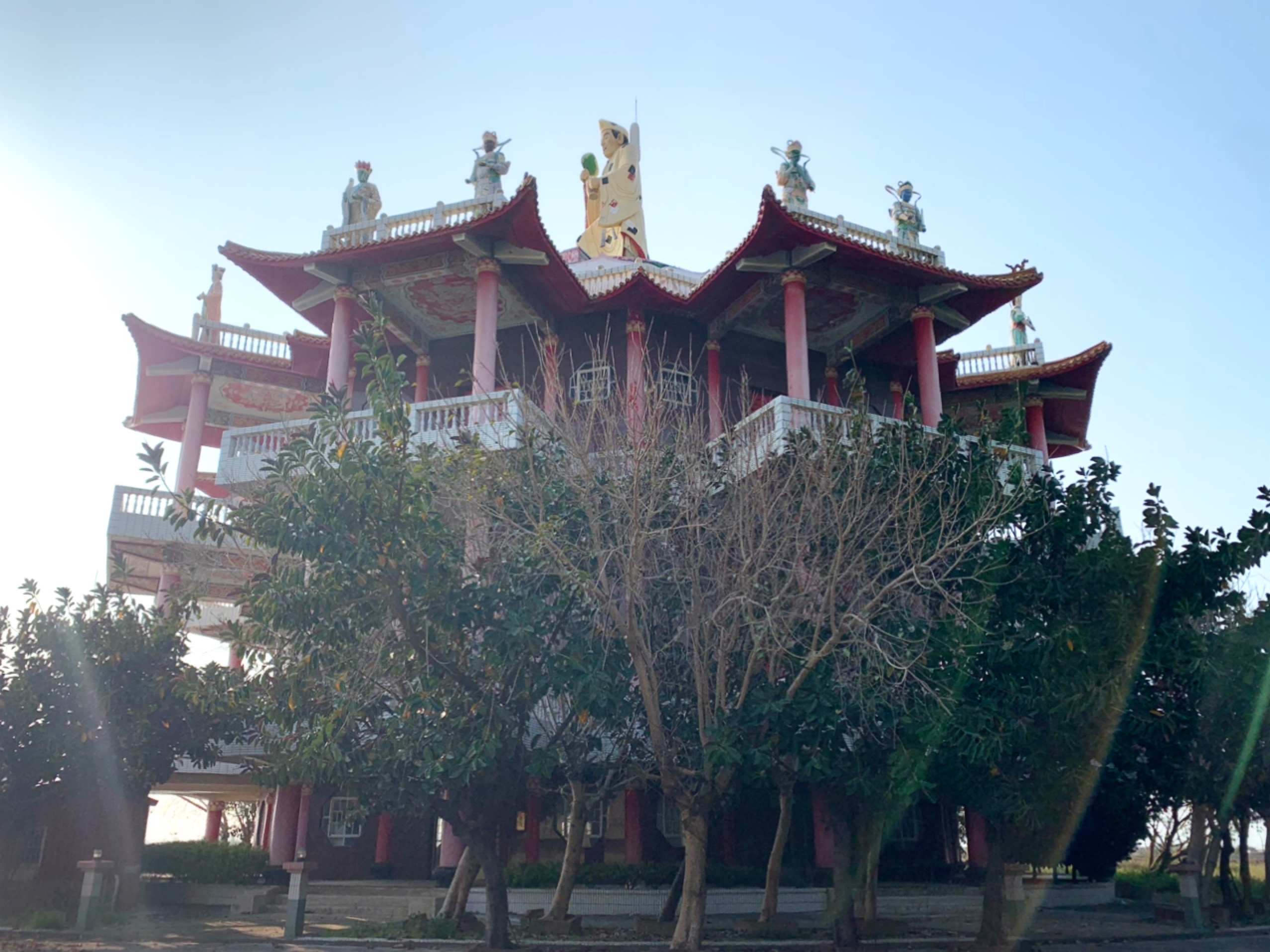
On the road to the deserted beach, you’ll pass by an oddly-shaped temple structure topped with a huge Ji Gong statue. Ji Gong was a 12th century monk known for his tattered robes and proclivity for meat and wine, which got him kicked out of the monastery. He is commonly said to appear to spirit mediums, and has a strong presence in Yi Guan Dao (一貫道), a modern religious group with some fairly conservative strictures on practice.

Curious, we pulled in just to see what the place was like. Though it’s not obvious from the road, it is indeed abandoned and locked tight, although one of the automatic lights at the entrance blinked on while we were there. I don’t know why this temple was abandoned, nor anything about it, but whatever happened, it occurred sometime after 2013, when a blogger was able to go inside and the temple still seemed to be active.
The spot is quiet and slightly creepy, as the building itself appears to be in good condition but there’s nobody around.
Heritage Houses (古厝)
From here, we looked into stopping at the black-faced spoonbill sanctuary, but the viewing platform closes in the late afternoon, and we wouldn’t have made it.
Instead, I keyed “heritage homes” (古厝) into Google Maps and found a few that, while not in Luermen exactly, were within driving distance. My best guess for why Luermen lacks historic buildings? For the same reason the temples keep getting rebuilt: the area had once been a bay and was prone to rapid geographical change, flash flood, and sedimentation. I wouldn't have built a house there, either.
I’ve gone "old house hunting" before; this is how I found the Liu Family House in Liucuo (the town’s name is literally Liu House, so it’s kind of a big deal), itself not far from Luermen.
However, unlike the Liu Family House, which isn’t inhabited full-time, some of these other houses are, or at least the owners tend to be home on the weekend. The Liu house can be viewed from the road, so it’s worth stopping even if you can’t enter, whereas the houses we visited are set back from the road; to see them, you have to trespass on private property.
The good news is that the owners of both houses we visited are friendly people all too willing to let some random historic house enthusiasts take a look at their courtyard (one even invited us into the family shrine). One family included a centenarian grandmother who was married in that same house at age 18 and her son — himself grandfather-age — watering the beautiful garden, and told us the inscription on the entranceway referenced the family’s original hometown in China some centuries ago. The other boasted gorgeous original paintings on wood; the ones on the outer doors are in dire need of restoration but it’s an expensive proposition. The painted panels in the family shrine are in far better condition, and the shrine itself boasts pristine original Majolica tiles.
But, because people actually live in these residences, I don’t feel comfortable sharing exactly which ones I visited. I wouldn’t want to be responsible for a trickle of visitors to people who will be hospitable if you drop by, but probably don’t want their lives interrupted that much. In any case, there are lots of options in the area: just find some near your chosen day trip route and go hunting. You don’t need me.
I will, however, offer some photos:








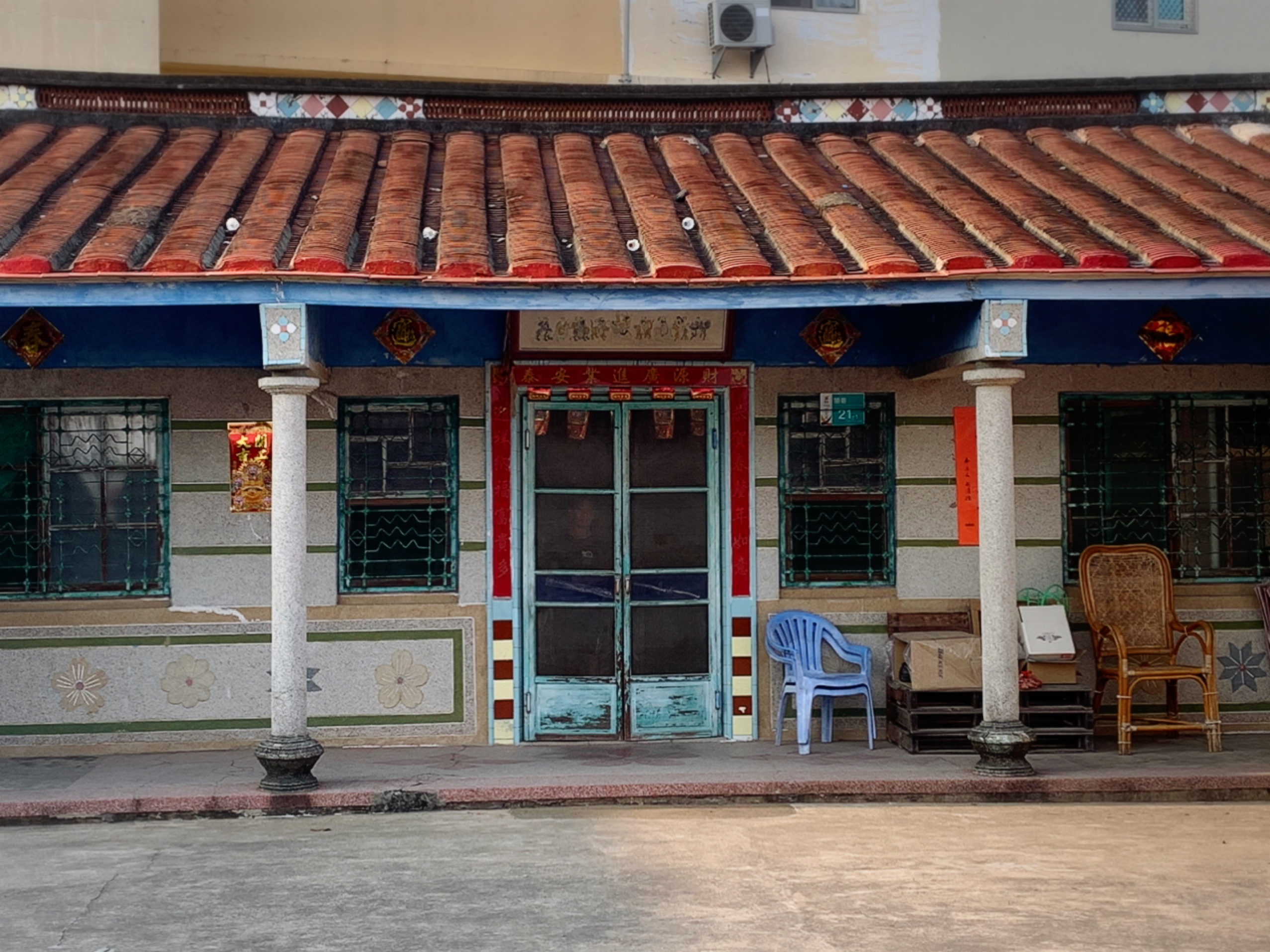


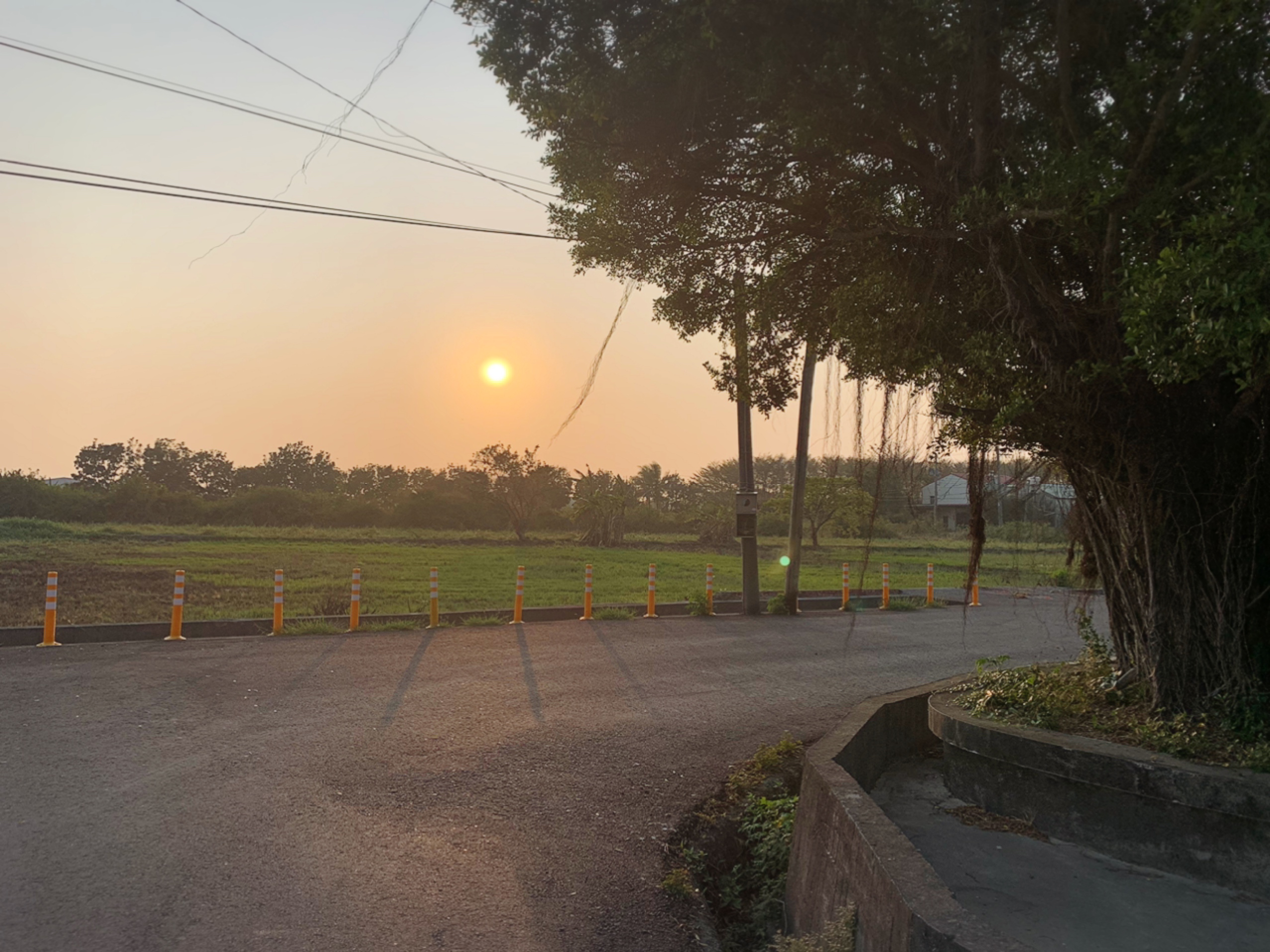
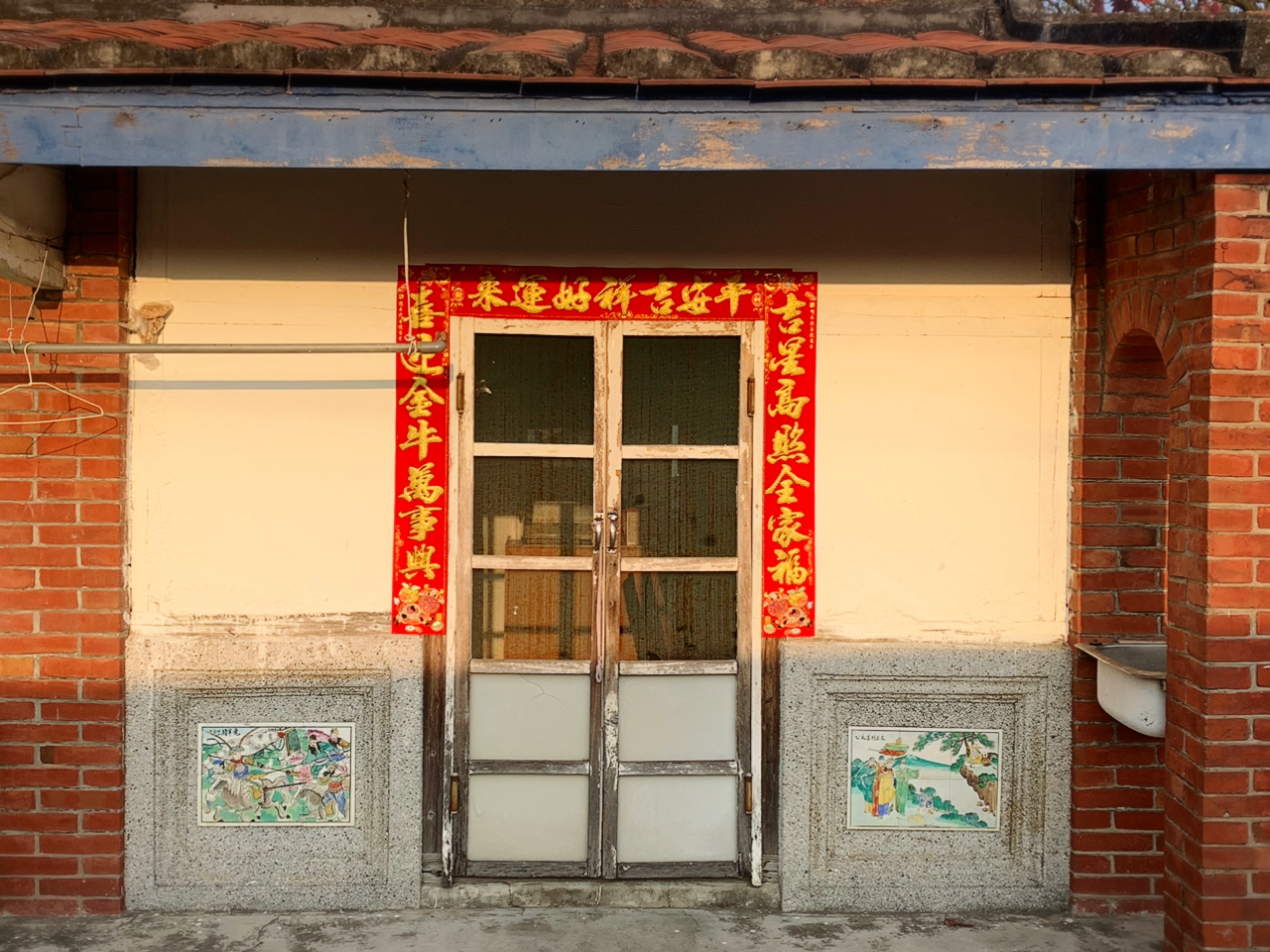
There is a lot we didn’t see on this trip. Historic houses and nature sanctuaries we didn’t get to and at least one seafood restaurant that looks excellent. There’s plenty to do in the area if you’re willing to go hunting.
Because night fell while visiting the second historic house, we decided it was time to head back to Tainan. Our friend knew a good place in the East District near National Cheng-kung University called 鯤島xSoshow.
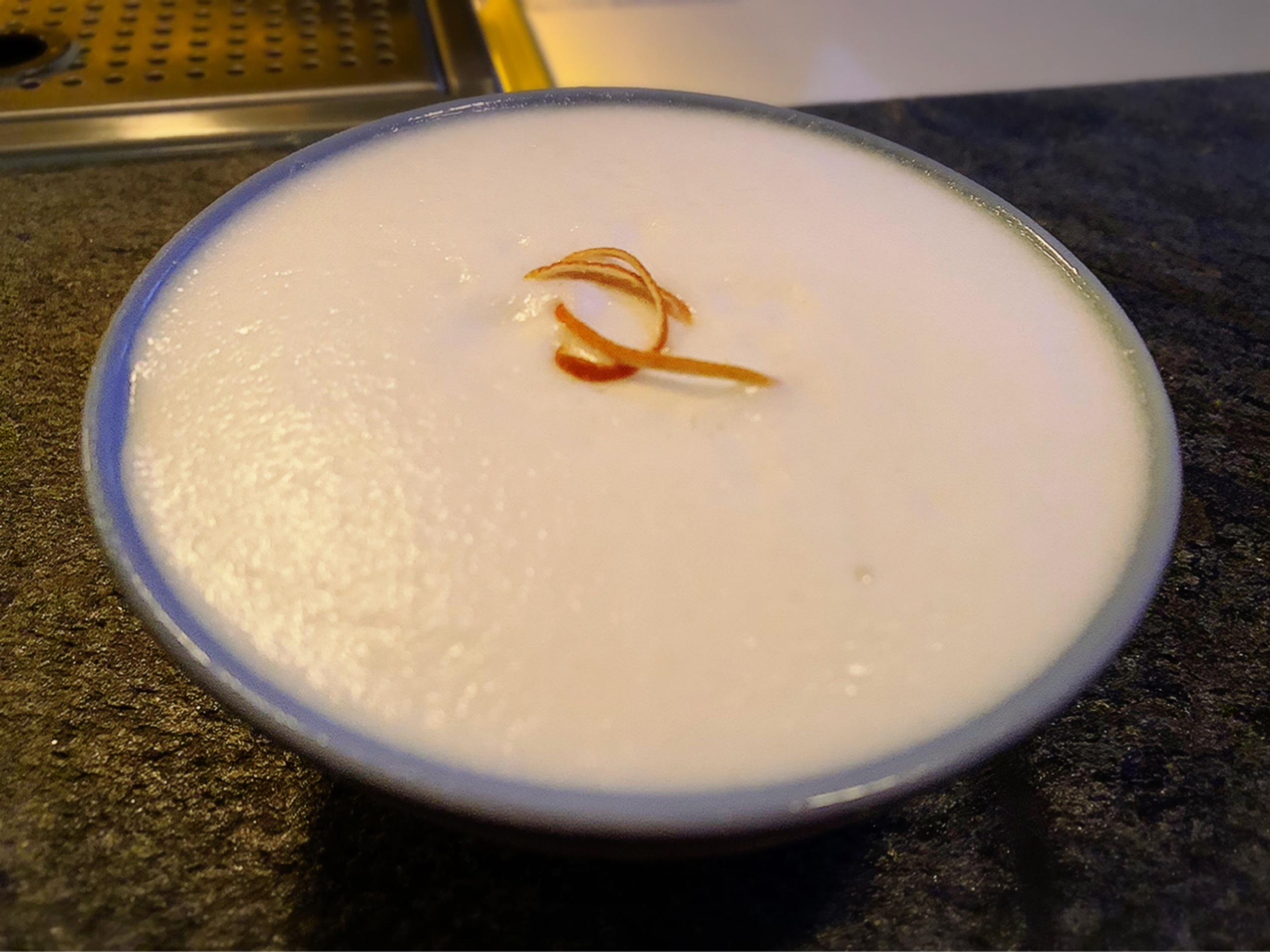
There's that sea monster 鯤 again: this should be a clue that KundaoxSoshow takes an interest in Taiwanese history, geography and agricultural products.
This restaurant specializes in traditional Taiwanese ingredients are used to make entirely new fusion-style dishes and boasts an excellent cocktail bar. I had a drink made with pomelo, tea, flower petals and gin, and another topped with egg white and served in a traditional steamed rice cake (碗粿) bowl — white with a cerulean rim, which could have passed for a steamed rice cake itself. It was delicious!





